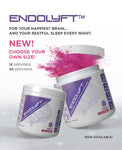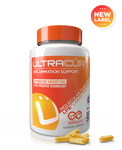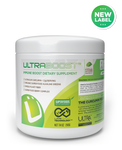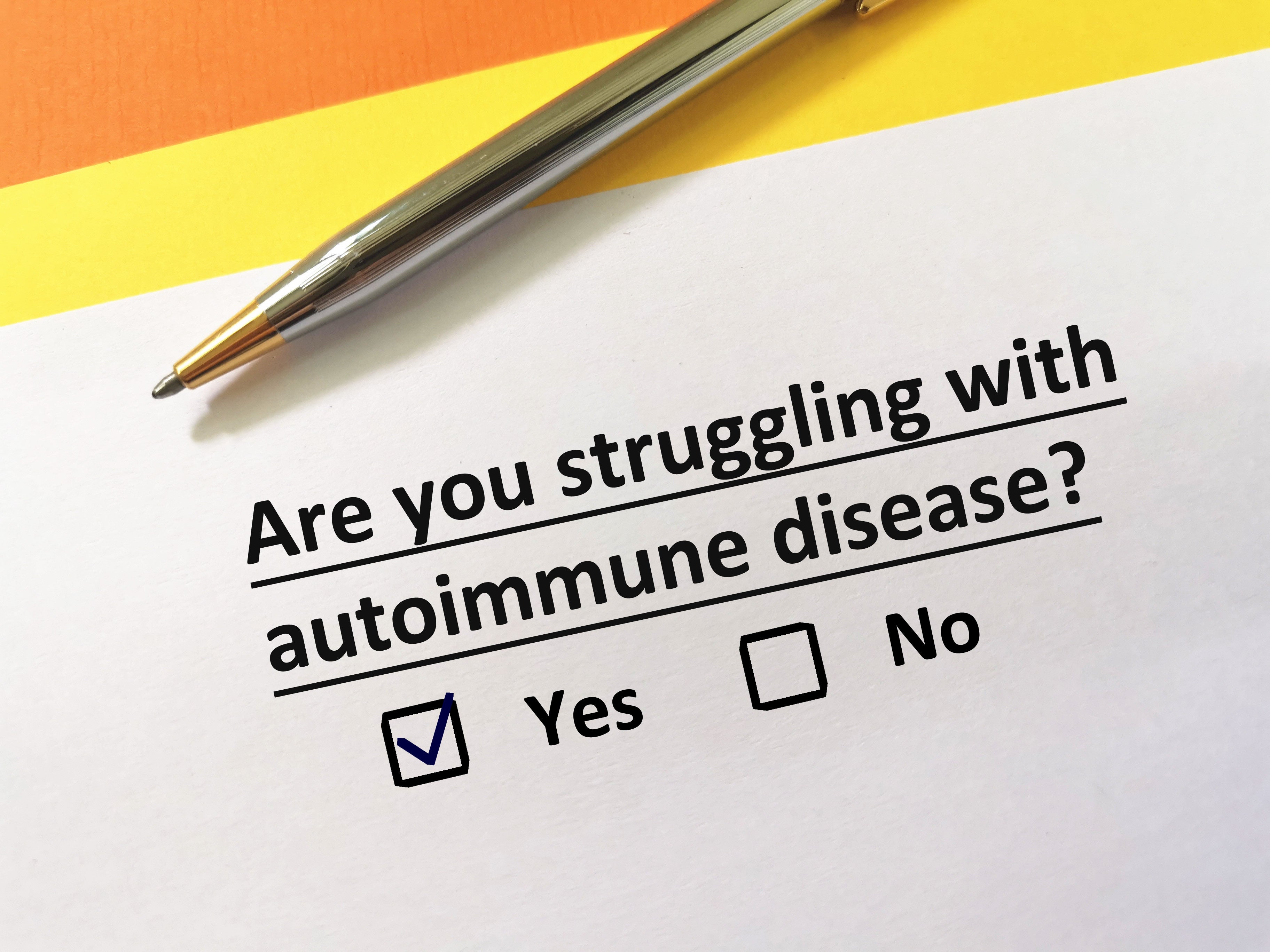Thirty-eight years ago a New York City M.D. named Dr. Bernard Bihari serendipitously discovered a solution for cancer and autoimmune diseases... including fibromyalgia, Crohn’s, AIDS, and multiple sclerosis.
He discovered that low-dose naltrexone (LDN) could improve these conditions.
As the name implies, low-dose naltrexone (LDN) is a very low dose of an FDA approved drug called naltrexone that was used at a high dose of 50 mg in the 1980s for treating opiate and heroin addicts. It was later approved for alcoholics too.
Your doctor may have heard of (full-dose) naltrexone. But chances are pretty good he or she hasn’t heard of low-dose naltrexone.
There’s a major difference between them. Dr. Bihari discovered that a dose of about 3 mg (up to 4.5 mg) benefited the immune system.
The high dose naltrexone blocks opioid receptors, detoxifies, and gets people off drugs. It's a very important distinction.
How Does LDN Work?
LDN (the low-dose version) helps regulate the immune system – primarily by promoting T regulatory cell function. T reg cells keep the immune system balanced, turn inflammation on and off (whichever is needed), and regulate optimal immune function so there’s not too much or too little expression of it.
One mechanism of action is that it temporarily blocks opioid receptors in the brain. Then the body thinks it needs more opioids so it produces more. By the time the extra opioids are made LDN is out of the system, leading to a net increase in opioid production.
Another way it works is that LDN slashes inflammation in the central nervous system (CNS).
CNS inflammation plays a role in various conditions that LDN is effective against. (Think fibromyalgia, chronic pain, depression, and autism.)
LDN also suppresses the activity of brain cells called microglia. Microglia are CNS immune cells that trigger inflammation in response to pathogens or injury.
Overly-activated microglia produce brain toxicity and a whole cascade of negative symptoms. LDN blocks that cascade by blocking receptors on those microglial cells.
So, two different mechanisms:
1. Balancing and regulating the immune system
2. Reducing CNS inflammation.
Those are the most clearly-identified mechanisms of action we know of at this time.

Okay, So What Conditions is LDN Used For?
The answer to that question can swing two ways.
The first is what the studies show. The second is what the anecdotal experience of doctors shows.
There’s definitely some research out there. But be aware that the studies tend to be small, not always randomized, and not always double-blinded.
One reason for that may be (at least in part) lack of funding, since LDN is off-patent and therefore drug companies can’t make a killing off of selling it.

What the Doctors Say
Dr. Bilhari alone successfully treated nearly 400 patients with MS – with 100% of his patients experiencing positive results. Other doctors also report successfully treating MS patients with LDN. At least 2,000 patients have been successfully treated with LDN for MS... and these are numbers from two decades ago!
Dr. Bilhari also treated 450 cancer patients, most of whom had already failed treatment with conventional radiation or chemo. Such conventional treatments are known to severely compromise the immune system and to be carcinogenic. Despite those obstacles, 60% of Bihari’s patients benefitted from LDN, many of them experiencing tumor reductions.
Dr. Bilhari used LDN with positive results in at least 18 types of cancer.
Anecdotal evidence shows that LDN may improve symptoms of Hashimoto’s disease. Some patients report positive improvements, while others seem to have no response at all.
What the Studies Say
Study results have been largely encouraging.
Most studies have been on cancer, multiple sclerosis, Crohn’s disease, fibromyalgia, and autism.
Crohn’s:
Crohn’s studies are especially encouraging, with a better than 70% remission rate and even complete mucosal healing. Given the poor success rates of typical treatments, a 70% remission rate is astounding. And there were no documented side effects of LDN in this study compared to placebo.
Jill Smith, M.D., gastroenterologist at Penn State University conducted two clinical trials using LDN on Crohn’s patients.
In a study of adult Crohn’s patients, each patient got 4.5 mg of LDN for 12 weeks, with a quality-of-life survey measured every 4 weeks during the study, and again 4 weeks after the study ended. A total of 89% of patients showed a positive result, and 67% achieved remission. [Source: American Journal of Gastroenterology, April 2007.]
In Smith’s study of children with moderate to severe Crohn’s they got either placebo or LDN for 8 weeks, followed by an additional eight weeks of openly administered LDN. Patients were monitored with blood chemistries and physical exams. They used a Pediatric Crohn’s Disease Activity Index to measure progress. At the end of the study, 25% of the LDN group were in remission, and 67% had improved. [Source: Journal of Clinical Gastroenterology, April 2013.]
Cancer:
Researcher Zagon found that LDN significantly inhibited cancer cells by causing cancer cell death, as well as boosting NK cells and other healthy immune system defenses against cancer.
In the Integrative Cancer Therapy Journal, 2009 issue, authors told about the remarkable long-term survival of four pancreatic cancer patients treated with a combination of alpha-lipoic acid and LDN. PET scans showed no evidence of disease.
Fibromyalgia:
In female patients with fibromyalgia, patients responded positively to an 8-week course of LDN. They reported more than a 30% improvement in quality-of-life markers such as pain, mood, and general life satisfaction. [Source: https://pubmed.ncbi.nlm.nih.gov/23359310/]
Multiple Sclerosis:
A study of M.S. patients found that LDN helped them more with mental health symptoms than their MS symptoms.
Autism:
A study on LDN for autism was conducted based on three case reports, 8 case series, and 14 clinical studies that originated from 1971 to May 18, 2006.
Naltrexone was found to be very effective in decreasing self-injurious behavior. In addition, it attenuated hyperactivity, agitation, irritability, temper tantrums, and social withdrawal. Patients also showed improved attention and eye contact. [Source: https://pubmed.ncbi.nlm.nih.gov/16735648/]
Should You or Should You Not?
LDN has been used successfully for a long list of neurodegenerative and autoimmune disorders – including Alzheimer’s disease, autism, Parkinson’s disease, inflammatory bowel diseases, autism, ALS, MS, and most cancers.
LDN treats diseases known to be very difficult to treat with conventional drugs. The side effects of such conventional treatments can be extremely harsh.
However, LDN offers a safe, alternative treatment option with minimal side effects – most notably temporary mild sleeplessness, headache, and sometimes mild diarrhea or nausea.
Also, LDN is very inexpensive and can be prescribed by any MD or DO since it’s an off-label use of an approved FDA drug. While insurance does not cover it, it only costs about $40-45 per month, making it highly affordable.
With so few side effects to cause risk, it may well be something to try out for a few months to see if it helps you.
You'll need to find an integrative M.D. or D.O. who is familiar with LDN to prescribe it for you. It's important that you get LDN from a reputable compounding pharmacy in quick-release form.
This Week’s Podcast Guest... Help for Your Autoimmune Disease
Our podcast guest this week is Dr. Deanna Windham, who suffered with a host of autoimmune issues as a child. Many of these same issues (plus more) stalked her into adult life. Her doctors even boldly predicted she’d die before age 40. [Spoiler alert: She didn’t.]
She trained with Dr. Julian Whitaker for 12 years, and attributes Dr. Whitaker with saving her life. During her time in his practice, she discovered the secrets of LDN for autoimmune issues.
Want to learn more about Dr. Windham’s gripping fight for life, health, and wellness? And how to use integrative health to manage your autoimmune disease? Listen to this week’s podcast on mp3 or mp4.
It just might be the ticket to your dream of wellness.




